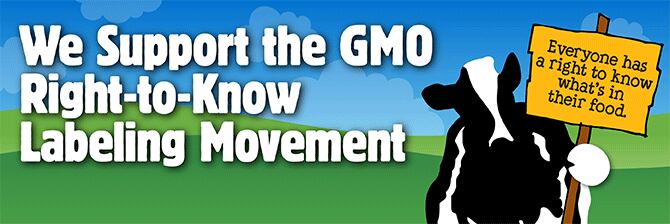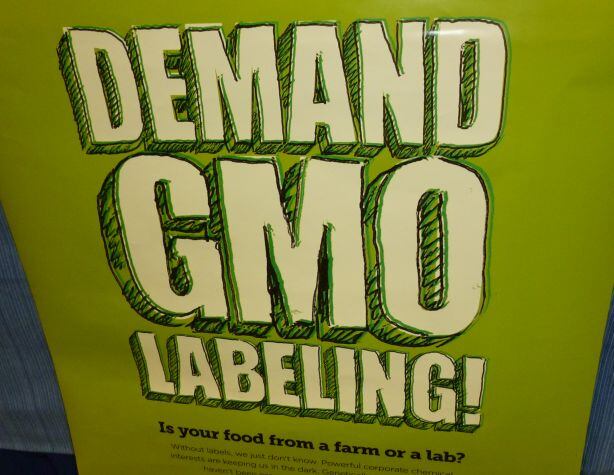The bill (SB18), sponsored by Sen. Peter Wirth (D-Santa Fe), proposed that products containing more than 1% by weight of a genetically modified material would need to be labeled, and had strong support from members of the public, claimed Eleanor Bravo, New Mexico organizer at advocacy group Food & Water Watch.
“It passed the Senate public affairs committee last Tuesday after an overwhelmingly positive discussion, but on Thursday, there was a vote on the Senate Floor not to adopt the committee’s report", she told FoodNavigator-USA.
"I’ve never seen this happen in the Senate before. This is my personal view, but I believe that agri-business got involved - they were lobbying here heavily - and I think they convinced some members of the Senate that labeling would cost a lot of money, which we don't believe is true.”
Food & Water Watch: Agri-food lobby convinced members of the Senate that labeling would cost a lot of money, which is just not true

23 senators rejected the report submitted by Committee Chair Senator Jerry Ortiz y Pino, with several who had been expected to vote in favor, voting against, claimed Bravo.
Senator Peter Wirth said in a statement: “New Mexicans want and deserve a label that tells them whether or not their food has been genetically engineered… While this defeat is a set-back, this discussion will continue at the state and national level.”
Washington GMO initiative likely to go to a vote in March or April
The New Mexico bill is the latest in a series of state-based GMO labeling initiatives including California’s Proposition 37 - which was narrowly defeated in November - and Washington State’s I-522, which has just secured enough signatures to go to the state legislature.
Similar initiatives are also underway in other states, including Vermont, Missouri and Hawaii.
I-522 is likely to go to a vote in March or April, after being certified last week. According to state law, the legislature can adopt it as law, put it to the popular vote in November 2013, or create an amended version that would appear on the November ballot alongside the original version, and send both versions to voters.
Hoffman: I think GMO labeling at a national level is inevitable

Steven Hoffman, managing partner of health food marketing agency Compass Natural Marketing, said he believed that “the bill stands a good chance”.
He added: “While the pro-GMO lobby was spending $1m a day in the run up to the vote on Prop 37, and it was defeated in the end, I think the debate raised awareness at a national and international level about GMOs. The world was watching.
“I think GMO labeling at a national level is now inevitable. The FDA has more than a million signatures from the Just Label It petition and it has just filed it away and done nothing.
“At the same time, we have all these state initiatives. I think we’ll get to a point where the food companies will say we can’t cope with all these different rules at a state level, and the FDA will have to do something [at a federal level].”
Missouri GMO labeling bill a ‘pre-emptive move’

Meanwhile, a spokesman for Missouri Senator Jamilah Nasheed, who has just introduced a bill (SB 155) proposing mandatory labeling for genetically engineered meat and fish, said the Bill had strong support.
“We know our Bill only focuses on meat and fish, but it is designed to be a pre-emptive move as we know many people are concerned about genetically engineered salmon and meat products that might come on the market in future.”
Asked why, if Senator Nasheed believed consumers had a right to know which foods were genetically engineered, she was only proposing labels for meat and fish rather than the thousands of foods containing GE ingredients that are already on the market, he said a narrow proposal was more likely to pass than a more comprehensive labeling initiative such as Prop 37.
"Part of the reason is practicality."
American Meat Institute: If Missouri Bill is passed, it would be preempted by the Federal Meat Inspection Act
However, the American Meat Institute, which stressed that it is “not aware of any livestock produced through genetic modification in the US”, claimed that the bill would in any case be pre-empted by federal law should it pass.
“Based on our understanding of the law, if it were passed, it would be preempted by the Federal Meat Inspection Act for any products produced in federal establishments.”
NPA National has not taken a position on I-522 but NPA North West supports it

The Grocery Manufacturers Association has consistently opposed GMO labeling initiatives in individual states, although representatives from several leading food manufacturers and retail giant Walmart are reported to have attended a meeting in Washington last month convened by the Meridian Institute to discuss federal labeling options.
Trade associations representing the natural products industry have been more ambivalent about state-level initiatives, however.
The Natural Products Association (NPA) and the Council for Responsible Nutrition (CRN) both opposed Prop 37 amid concerns about a tidal wave of litigation arising from its private enforcement provisions, plus frustration with its limited definition of 'natural' foods.
However, they have been more equivocal over Washington’s I-522 initiative, which would also permit private individuals to take legal action to enforce it (60 days after giving notice to the state and alleged violator) and would allow the courts to "award reasonable costs and attorneys’ fees" to private plaintiffs. However, I-522 plaintiffs cannot seek damages.
The CRN says it has “no set position” on I-522 and the NPA says “NPA National has not taken a position on this... but NPA North West does support it.”
Opponents of GMO labeling say it would mislead and falsely alarm consumers, and increase costs without any clear benefit.
They also point out that the FDA believes that genetically engineered foods that do not differ from conventional counterparts "in any meaningful or material way" do not warrant additional labeling.
